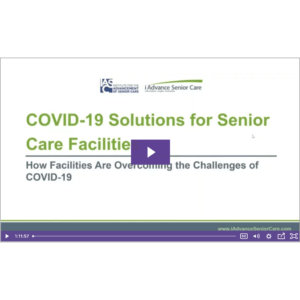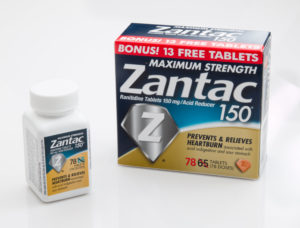Ducking disasters
Preparing for the unexpected isn’t just for communities in a hurricane zone or a tornado corridor, and emergency plans aren’t just about the usuals like fires and floods. For long-term care sites, the “being prepared” mantra goes beyond having the required forms and processes in a D-ring binder on the nursing home administrator’s (NHA's) bookshelf.
The impact of training is the difference between possessing a disaster recovery plan and knowing that staffers know how to implement it. Emergency preparedness is a tandem matter of consistent training schedules and leadership, notes Steve Wilder, CHSP, STS, CEO of Sorensen, Wilder & Associates, a safety and emergency preparedness consultancy in Bourbonnais, Ill.
When training sessions for emergency preparedness are scheduled, the NHA and the director of nursing should be the first ones to sign up. “Management needs to be in the front row at every training,” Wilder says. “Employees need to see management's commitment to this. If management isn't committed, employees won't be. Stop making excuses and get to the training. Your employees will be looking to you for leadership in an incident, and if you aren't participating in the training, you may lead them into a crisis."
Half the battle is knowing how to keep the little problems from escalating to the point where the emergency plan must be activated. When the air conditioning unit dies, it could be a short-term inconvenience or a major crisis, depending on the processes and assurances in place to get it repaired in a timely fashion. What about the elevators? The kitchen food refrigeration? What’s your site’s procedure to keep a breakdown from becoming a disastrous meltdown in processes?
Every location should conduct regular Hazard Vulnerability Assessments (HVAs) to identify where the true hazards are, yet too few sites perform them, Wilder says. Recovery is another aspect of disaster preparedness that is too infrequently practiced, he adds. “That's one reason we do so well through response and mitigation, and then we fall apart. Look where our drills end—We never test our continuity of operations plan. We just say, ‘Well done everyone, now go back to work.’”
Need more impetus? Paying more attention to HVAs and event recovery rehearsals may become crucial to surviving nursing home surveys down the road. “As I understand the pending changes in CMS, much greater emphasis will be placed on the HVA and on training and drilling for reality,” Wilder says. “Failure to do so may be catastrophic in terms of the facility’s survey outcomes.”

Pamela Tabar was editor-in-chief of I Advance Senior Care from 2013-2018. She has worked as a writer and editor for healthcare business media since 1998, including as News Editor of Healthcare Informatics. She has a master’s degree in journalism from Kent State University and a master’s degree in English from the University of York, England.
Related Articles
Topics: Disaster Preparedness , Executive Leadership , Risk Management










